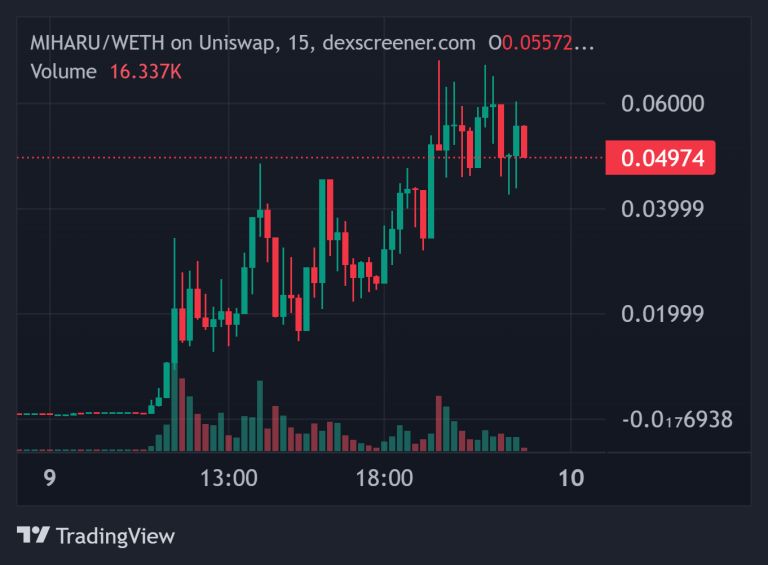
Roger Ver, the early Bitcoin investor famously nicknamed “Bitcoin Jesus,” has filed a lawsuit against the Spanish government in a bid to block his extradition to the United States, where he faces criminal tax fraud charges that could result in a prison sentence of more than 100 years.
The lawsuit, filed with the European Court of Human Rights in Strasbourg last month, argues that Spain violated Ver’s legal protections when it approved a U.S. request to extradite him to Los Angeles.
In court documents reviewed by Bloomberg, Ver’s legal team described the Spanish extradition order as a “clear denial of justice” and a breach of international extradition protocols.
Spanish authorities arrested Ver last year on the island of Mallorca after a U.S. indictment was unsealed, charging him with mail fraud, tax evasion, and filing false tax returns. He was later released on bail while legal proceedings continued. U.S. prosecutors allege that Ver failed to pay over $48 million in taxes related to his 2017 sale of tens of thousands of bitcoins, worth approximately $240 million.
Though Ver renounced his U.S. citizenship in 2014 and acquired citizenship in St. Kitts and Nevis, prosecutors argue he remained liable for U.S. taxes due to his continued ownership of U.S.-incorporated businesses, including MemoryDealers.com and Agilestar.com.
The case also centers on the so-called “exit tax,” a requirement that wealthy Americans who expatriate pay capital gains tax on their global assets.
In his legal filing, Ver’s Spanish attorney, Jaime Campaner Munoz, accused Spanish authorities of failing to consider the “legal uncertainty and insecurity” surrounding U.S. tax policy on crypto assets during the relevant period. He also argued that extraditing Ver would illegitimately curtail his right to liberty.
A spokesperson for the European Court of Human Rights confirmed receipt of the complaint, which is currently under review. Neither Spain’s government nor the U.S. Department of Justice has commented on the ongoing case.
Ver’s legal team in the United States has challenged the indictment, describing the charges as flawed and politically charged. David Schoen, Ver’s U.S. attorney, said in an interview that the case “should have never been indicted criminally,” pointing out that the crypto industry was still “completely in flux” in 2017 regarding token valuations and tax implications.
According to Schoen, Ver had sought advice from U.S. tax professionals before selling his bitcoin and acted based on that guidance.
“He did not commit any crime,” Schoen insisted. “There was no intent to defraud. He followed the advice of professionals. That’s not a crime.”
Roger Ver’s Legal Fight Sparks Political Drama and Crypto Community Clash
The crypto entrepreneur’s legal battle has drawn widespread attention in both political and blockchain circles.
In a January video posted to his X account, Ver appealed directly to President Donald Trump, asking for help. “For decades, I’ve been terrorized by rogue U.S. government agents who hate American freedom. This is my story,” he said.
The plea sparked online backlash. Elon Musk posted on X, writing, “Roger Ver gave up his U.S. citizenship. No pardon for Ver. Membership has its privileges.”
Despite that, Ver reportedly paid $600,000 to Trump ally Roger Stone earlier this year to lobby Congress and influence the legal environment surrounding his charges.
According to congressional filings, Stone’s lobbying efforts sought to challenge the law under which Ver was charged. However, Schoen has since confirmed that Ver is no longer pursuing a pardon.
The case has stirred heated reactions within the crypto community. Ross Ulbricht, the recently pardoned founder of the Silk Road darknet marketplace, expressed his support for Ver, citing Ver’s prior advocacy on his behalf.
“Roger Ver was there for me when I was down and needed help. Now Roger needs our support,” Ulbricht posted on X. “No one should spend the rest of their life in prison over taxes. Let him pay the tax (if any) and be done with it.”
But not everyone shares that sentiment. Dan Held, a prominent crypto figure and former Kraken executive, called Ver “toxic” and accused him of doing long-term damage to Bitcoin’s development. “He misaligned expectations around Bitcoin so much that it led to a civil war.”
Held said, referring to the infamous 2017 split between Bitcoin and Bitcoin Cash: “He deserves everything that he’s about to get.”





